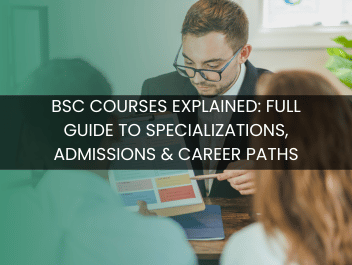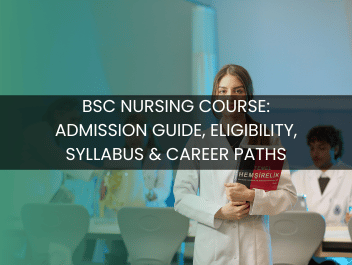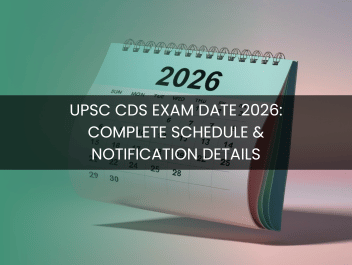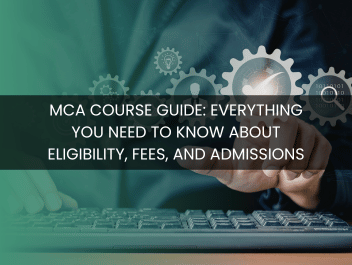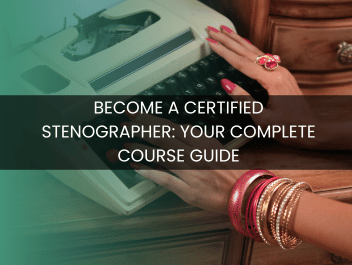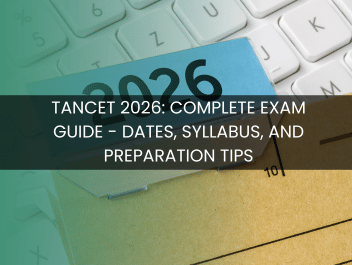
How Can You Describe Yourself Professionally? 5 Key Strategies You Need to Know
In today's competitive job market, knowing how to describe yourself professionally is crucial for standing out to employers. With so much information to convey, many wonder how to explain themselves effectively in English and utilize a strategy that highlights their unique skills. The ability to concisely describe yourself in 2 proper sentences can have a significant impact on career advancement.
Employers often ask, "How would you describe yourself professionally?" during interviews to gauge your self-awareness and ability to communicate. A strong self-description serves as a personal brand, helping to differentiate you from other candidates and align with a company's needs. Mastering the art of self-description is essential for anyone looking to progress in their career.
This article covers five key strategies, including how to explain yourself, craft a compelling narrative, and tailor your description to your audience. By the end, you'll learn how to present yourself confidently and effectively in professional settings.
Table of Content
- 1. Understanding the Importance of Self-Description
- 2. Strategy 1: Crafting a Concise Summary
- 3. Strategy 2: Identifying Key Professional Attributes
- 4. Strategy 3: Creating a Compelling Narrative
- 5. Strategy 4: Tailoring Your Description to the Audience
- 6. Strategy 5: Practicing with Feedback
- 7. Conclusion
Understanding the Importance of Self-Description
Describing yourself professionally is a crucial skill in today’s competitive job market. Knowing how to explain yourself in English helps communicate your skills and experiences effectively. It's important not just during job interviews but also for networking and career growth. By mastering how to describe yourself professionally, you create a strong personal brand that can lead to career advancement. Please describe your strengths and experiences clearly, making sure to connect them to your career goals. This is not just about stating what you do but illustrating how you contribute to a company’s success with high-quality work.
Why Employers Ask: “How would you describe yourself professionally?â€
Employers ask, "How would you describe yourself professionally?" to evaluate your self-awareness and fit for their company culture. This common interview question reveals if you understand your own skills and how they align with the job description. In two proper sentences, you could highlight your soft skills and share relevant work experiences. Sample answers could include highlighting your organizational skills or your track record of problem-solving skills in your previous role. How you answer this question shows your communication skills and provides insight into how you approach difficult tasks.
The Impact of a Strong Self-Description on Career Advancement
A strong self-description can significantly impact your career advancement. By clearly stating who you are and what you can do, you set yourself apart from others. It helps in identifying your transferable skills and prepares you to take on leadership positions. Employers value candidates who can describe themselves in a way that aligns with firm goals and demonstrates their potential for growth. When you effectively describe yourself in professional terms, it opens doors to law your dream job and better opportunities. It’s essential to use experiences and skills from your current role to pave the path for your desired career growth.
Strategy 1: Crafting a Concise Summary
Describing yourself professionally can be a daunting task, especially when you want to make a great impression. This challenge requires craft in addressing "how can you describe yourself professionally" in a manner that's effective and engaging. A concise summary is a perfect tool for this task. It enables you to communicate essential information about yourself succinctly yet meaningfully. High-quality work can reflect in expressing your professional journey and skills succinctly. Use this strategy to focus on the key points that highlight your unique value in any setting, like a job interview or a meeting with potential stakeholders.
Tips on How to Explain Myself in English
Explaining oneself in English requires focus and clarity, especially when you need to handle complex ideas and deliver clear messages. A good starting point is to identify your core strengths and relevant experiences. Think about the challenges you’ve overcome and the skills you’ve honed over time. Evaluating how to explain myself in English allows for a connection with your audience through relatable language and examples, illustrating your professionalism. Common interview questions can often be handled with simple and direct answers that avoid generic phrases.
Effective communication demands practice; engaging in mock interviews can provide invaluable experience. By practicing, you develop your ability to structure your thoughts and provide coherent and impactful responses.
Best Practices for Describing Yourself in 2 Proper Sentences
Describing yourself in two proper sentences is a skillful task. Saying much with little means focusing on your most significant attributes. Please describe yourself in a way that showcases your primary strengths and how these align with your career goals or the role you aspire to attain. Here's how you would describe yourself professionally: Demonstrated problem-solving skills and a keen ability to adapt have defined my career journey so far, aligning seamlessly with my dream job in [industry or role]. In previous roles, I've consistently delivered high-quality work while maintaining strong communication skills that drive team success.
By following these practices, you not only create a lasting impression during interviews or other professional interactions but also set yourself apart from the competition through clarity and professionalism. Remember, less can be more when it comes to effective self-description.
Strategy 2: Identifying Key Professional Attributes
When someone asks you, "how would you describe yourself professionally," it's crucial to have a clear and compelling answer. Knowing your key professional attributes not only helps in job interviews but also in setting firm goals. Identifying these attributes requires reflecting on your career goals, previous roles, and relevant skills. This strategy will assist you in pinpointing the qualities that make you a unique candidate and in enhancing your success across different professional situations. Whether you're aiming for a leadership position or honing your communication skills, understanding your strengths is vital.
How to Pinpoint Your Unique Skills and Experiences
To describe yourself in 2 proper sentences, you need to first understand your unique skills and experiences. Begin by evaluating your past roles and learning experiences. Consider times when your problem-solving skills led to positive outcomes or when your communication skills improved team dynamics. Focus on skills that align with your dream job and company culture. This reflective process helps answer common interview questions and showcases your high-quality work and track record.
Please describe the skills that resonate most with your career trajectory. Focus on transferable skills that are relevant to your industry. Engage in mock interviews to practice articulating these attributes clearly. How can you describe yourself professionally if you don't truly understand what makes you stand out? Connecting your skills to specific achievements can make your professional description more impactful and memorable.
Using Industry Keywords to Enhance Your Self-Description
In presenting yourself professionally, utilizing industry keywords can be extremely advantageous. Employers often look for specific soft skills and organizational skills in candidates. Research these terms and incorporate them into your narrative. Keywords from your job description and firm goals can highlight your alignment with the role and company.
When contemplating how to explain myself in English, consider industry-relevant experiences and keywords. They not only show your awareness of the field but also optimize your profiling for applicant tracking systems. Use terms like "team player," "leadership skills," and "effective communication" to demonstrate your alignment with the job description.
How can you describe yourself professionally if you're unfamiliar with essential industry jargon? Regularly update your vocabulary and weave these keywords naturally into your professional profile. This will ensure that your self-description is robust and aligns with the expectations of potential employers.
Strategy 3: Creating a Compelling Narrative
In any professional setting, a compelling narrative can set you apart. But how can you describe yourself professionally in a way that captures attention? A strong narrative combines both your personal and professional experiences to reflect your unique qualities and achievements. Consider your past roles, your aspirations, and the impact you've made. How would you describe yourself professionally in this light? Convey how your journey aligns with your career goals and firm goals. This approach not only showcases high-quality work and relevant work experience but also highlights your ability to meet organizational goals and excel in a leadership position.
How to Combine Personal and Professional Stories
Combining personal and professional stories is key to building a narrative that resonates. When you explain yourself in English, intertwine personal anecdotes that showcase your soft skills and transferable skills with professional achievements. This blend helps to demonstrate a well-rounded character. Please describe how personal growth aligns with your career path. For example, if overcoming a personal challenge developed your problem-solving skills, link this to high achievements in a previous role. This synthesis not only answers common interview questions effectively but also creates a memorable impression.
The Power of Anecdotes in Describing Yourself
Anecdotes hold immense power in describing yourself professionally. They provide concrete examples of your competencies. Sharing stories of positive experiences helps in portraying track records of success and adaptability. How can you describe yourself professionally through stories? For instance, discussing a difficult task handled through teamwork demonstrates strong team player qualities. Anecdotes breathe life into generic answers, adding depth to your elevator pitch and mock interview preparations. They offer a narrative structure that ensures engagement and clarity for the listener.
In conclusion, crafting a compelling narrative is an art. By blending personal tales with professional milestones, you create a vivid story that resonates with your audience. Through strategic use of anecdotes, you can effectively explain yourself and highlight the unique skills that define your professional identity.
Strategy 4: Tailoring Your Description to the Audience
Understanding how to describe yourself professionally is crucial in diverse work environments. When asked to describe yourself in 2 proper sentences, it’s essential to tailor your response to fit the context and the audience you're addressing. Please describe your professional skills and experiences in a way that resonates with the listeners, whether they are potential employers, peers, or clients. Adapting your professional narrative ensures effective communication of your strengths and how they align with the organization’s goals.
Customizing Responses for Different Professional Settings
When considering how to describe yourself professionally, it's vital to adjust your description based on the workplace or event. Different professional settings require distinct communication styles and emphasis on specific skills. In a corporate interview, highlighting leadership skills, problem-solving skills, and relevant work experience could make you stand out. When applying for a creative role, emphasize your innovative mindset and ability to generate high-quality work. Being a team player is often a beneficial trait to mention, showing compatibility with company culture. Before any engagement, reflect on how you explain yourself in English and adapt your approach to resonate with your audience.
Importance of Researching Your Audience
Researching your audience is crucial when deciding how you would describe yourself professionally. Knowing about the company culture, the role you're aspiring for, and the audience’s expectations can guide your response. Start by researching the firm's goals and how your previous role and experience can support these. This understanding helps in forming an elevator pitch that aligns with what the organization values. For example, transferable skills and communication skills could be more valued in roles that emphasize collaboration, whereas organizational skills might be crucial for managerial positions. By tailoring your description, you not only demonstrate preparedness but also your commitment to fitting into the organization seamlessly.
Strategy 5: Practicing with Feedback
To describe yourself professionally, you must refine your presentation skills. One way to achieve this is through practice and receiving constructive feedback. Feedback is crucial for personal and professional development. It helps in identifying areas that need improvement and highlights strengths. Practicing with feedback ensures that the manner in which you describe yourself in any professional setting, such as a job interview, becomes more polished and effective. This strategy can significantly aid in how you explain yourself in English, which is a skill highly valued in diverse work environments.
Seeking Input from Peers and Mentors
When aiming to describe yourself in 2 proper sentences or more expansively, input from peers and mentors can be invaluable. Peers often share similar experiences and understand common challenges you might face. Mentors, on the other hand, have the experience and wisdom to offer more targeted advice on how to improve your professional description. Engaging actively with peers and mentors can help refine aspects of your self-description by providing diverse perspectives. Their feedback can help you craft an elevator pitch that accurately captures your strengths, such as your leadership and problem-solving skills.
Utilizing Role-Playing Scenarios to Improve Delivery
Role-playing scenarios are an excellent way to practice how to explain yourself in English in a controlled environment. By simulating real-world situations, such as a mock interview, you can rehearse your responses and adjust them based on feedback. These scenarios can also enhance your communication and organizational skills. As you play different roles, you can experiment with tone, style, and content until you find what feels most authentic and effective for you. Additionally, role-playing allows for the practice of handling difficult tasks or contentious discussions in a safe setting, which can boost your confidence and execution during actual professional interactions.
Conclusion
Describing yourself professionally is an art that requires clarity and precision. When asked, "how can you describe yourself professionally," it's essential to focus on your most relevant skills and experiences that align with the role you're targeting. Whether you're in a job interview or crafting an elevator pitch, your ability to explain yourself in English efficiently and effectively can set you apart from other candidates. Employing strategic approaches to communicate your strengths can result in improved career opportunities.
Recap of Strategies for Describing Yourself Professionally
Recapping the strategies for describing yourself professionally involves understanding the main techniques that can help you stand out. Begin by preparing concise and impactful sentences that illustrate your professional identity — practice sentences like, "Describe yourself in 2 proper sentences," which showcase your core skills and attributes. This exercise not only boosts your confidence but also enhances your communication skills.
When asked to "please describe" your professional self, make sure to focus on showcasing a blend of hard and soft skills such as problem-solving skills, communication skills, and relevant work experiences. Highlight your track record and connect it to the job description to demonstrate your suitability for the role. Understanding how to explain yourself in English involves not only knowing your experiences but also articulating them clearly in a way that aligns with the company's culture and values.
By following these strategies and focusing on the question, "how would you describe yourself professionally," you ensure a comprehensive and compelling presentation of your professional self. This preparation is imperative, whether in an interview or any professional setting. By doing so, you can achieve your career goals and position yourself for your dream job.
Looking For Job Satisfaction on the long run?
Please feel free to contact our experts
Call to ask any question
+91-9319336222Monday to Saturday
(9:00 AM to 8:00 PM)Resent Blogs
10 Things to Do During an Interview to Impress Your Future Employer
Learn MoreCrafting Your Personal Narrative: A Guide to Writing About Yourself
Learn MoreTop 10 Essential Interview Questions and Expert Answers for 2025
Learn MoreAce Your Next Interview: Essential Questions and Expert Answers for 2025
Learn MoreFirst-Time Manager Interview: Crucial Questions and Strategies for Success
Learn More150 Essential General Knowledge Questions for Interviews in 2025
Learn MoreMaster the Google Interview: Strategies for Success in 2025
Learn MoreHow Can You Describe Yourself Professionally? 5 Key Strategies You Need to Know
Learn MoreMastering the Art of How to Take Interview: Essential Techniques for Success
Learn More25 Essential HR Interview Questions and Answers PDF You Can't Ignore
Learn More7 Tips to Ace Your HR Screening Round and Land Your Dream Job
Learn More10 Essential Tips for Acing Your Interview Exam
Learn More5 Unique Interview Format Examples to Stand Out in Your Next Interview
Learn More5 Powerful Techniques for a Memorable Interview Introduction
Learn MoreMaster Your Next Interview with These Top Interview Preparation Apps
Learn MoreMastering the Art: Top Interview Questions for 12th Class Students
Learn More7 Must-Know Interview Questions for Freshers to Ace Your Job Hunt
Learn MoreMastering Interview Questions for HR Position with Answers: Strategies for Success
Learn More12 Essential Interview Questions for Recruiter Position You Should Prepare For
Learn More10 Must-Know Interview Questions UK Employers Love to Ask
Learn More10 Creative Interview Writing Examples to Spark Your Imagination
Learn More15 Essential Managerial Interview Questions for Freshers to Prepare
Learn More15 Unique Marketing Interview Questions You Haven't Prepared For
Learn More7 Key Strategies for a Successful Mock Interview Session
Learn MoreThe Ultimate Guide to Model Interview Questions: What You Need to Know
Learn More5 My Self Question Exercises to Unlock Your True Potential
Learn More10 Normal Questions That Can Spark Deep Conversations
Learn More15 Essential Personal Interview Questions for Freshers to Ace Your Next Job
Learn More10 Essential Phone Interview Questions You Can’t Afford to Ignore
Learn More15 Essential Sales Interview Questions and Answers for Freshers
Learn More7 Key Situational Interview Questions Every Employer Should Ask
Learn More15 Essential Software Developer HR Interview Questions You Need to Prepare For
Learn MoreMastering the Technical Interview: Essential Questions and Answers
Learn MoreTop Strategies for Responding to Tell Me About Yourself in a Student Interview
Learn MoreTop 10 Interview Questions and Expert Answers
Learn MoreMastering the Art of Interviewing: 50 Tough Questions and Smart Answers
Learn MoreHow to Ace Your Next Mock Interview: Tips and Strategies for Success
Learn MoreYour Ultimate Guide: 60 Insightful Questions to Ask Interviewers
Learn MoreCrafting the Perfect Response to Why Do You Want This Job?
Learn MoreUnique Ways to Tackle the Question Why Should We Hire You?
Learn MoreWhy Should We Hire You? - Top 10 Answers for Customer Service Roles
Learn MoreMastering the Art of Discussing Work Experience in Interviews
Learn MoreMastering Your Sales Interview: 50 Essential Questions and Answers
Learn MoreCareer Paths After 12th Commerce: Your Future Starts Here
Learn MoreExplore One-Year Courses After 12th for Non-Medical Students
Learn MoreQuick Career Paths: 2-Year Degree Courses After 12th for Fast-Track Success
Learn MoreComprehensive Guide: Courses After 12th Commerce
Learn MoreTop 10 Lucrative Courses to Consider After Completing Engineering
Learn MoreAdvancing Your Career: Top Choices After B.Tech in 2025
Learn MoreExplore Your Future: After CET Exam Which Course is Best for Aspiring Professionals?
Learn More5 Reasons Why After Inter CEC, Choosing the Right Course is Crucial
Learn MoreAfter PUC Which Course is Best for Aspiring Engineers? Explore Your Options!
Learn MoreUnlocking Your Future: Best Arts and Science Courses After 12th for 2025
Learn MoreWhy a Bachelor Degree in Commerce is Your Pathway to Success
Learn More15 Best Career Courses to Boost Your Earning Potential in 2025
Learn MoreEmerging Career Fields for 2025: What You Need to Know
Learn MoreExploring In-Demand Career Paths After 12th: Science, Arts, Commerce
Learn More15 Lucrative Science Careers You Should Consider
Learn MoreHigh-Paying Career Paths for Girls After 12th Commerce
Learn MoreTop 10 High Salary Career Courses After 12th Biology
Learn MoreTop 10 High-Paying BSc Specializations for 2025
Learn MoreExploring the Future: Innovative Career Paths for B.Tech Graduates in 2025
Learn MoreComprehensive Guide to B.Tech Specializations for MPC Graduates
Learn MoreUnlocking Your Potential: The Ultimate B Tech Job List for 2025
Learn MoreB.Tech Salary Insights: How Much Can You Earn Per Month?
Learn MoreEssential Business Courses After 12th: Your Guide to a Successful Career
Learn MoreHow Commerce Students Can Transition to BSc IT
Learn MoreExploring Career Paths After 12th: Your Guide to Success in 2025
Learn MoreCertainly! Here are 10 additional title ideas inspired by the list you provided
Learn MoreExploring Career Paths After Engineering: Your Guide to the Future
Learn MoreThe Ultimate Guide to Career Options Post-High School Graduation
Learn MoreDiscover the Top 10 Chemistry Courses After 12th That Lead to High-Paying Jobs
Learn MoreExplore the Best Diploma and Certificate Programs After 12th Commerce
Learn MoreCareer Paths for Computer Science Graduates: Top Opportunities to Explore
Learn MoreExplore Top Courses After 12th: Your Path in Science, Arts, or Commerce
Learn MoreTop 10 Courses After 12th Commerce for a Successful Career
Learn MoreTop Paying Professional Courses After 12th for Commerce Students
Learn MoreEmerging Career Paths After 12th Commerce Without Maths
Learn MoreExploring Career Paths After 12th Science: A Complete Guide
Learn MoreComprehensive Guide to Courses and Career Paths after 12th Grade
Learn MoreEmerging Career Paths in India: What to Expect in 2025
Learn MoreTop Diploma Paths for Students After Completing 12th Science
Learn MoreTop 15 Easiest High-Paying Jobs to Pursue in India by 2025
Learn MoreNavigating Your Future: Easy Degree Options After 12th
Learn MoreExploring Top Engineering Branches After 12th: A Comprehensive Guide
Learn MoreExploring Advanced Studies: Top Entrance Exams for Engineering Graduates
Learn MoreMBA Salary Insights: Top Packages and Compensation Trends in India
Learn MoreTop 15 Lucrative Careers in India for 2025
Learn MoreTop 10 High-Paying Jobs for Commerce Graduates Without Maths
Learn MoreTop 10 High Salary Courses After 12th PCB for Future Success
Learn MoreHigh-Earning Courses to Pursue After 12th Science in 2025
Learn MoreHigh Paying Career Paths for BiPC Students: Top 10 Courses to Consider
Learn MoreExploring High-Paying Engineering Degrees for the Future
Learn MoreExploring Integrated Courses After 12th: A Comprehensive Guide for Students
Learn MoreExploring Career Prospects: What Can You Do with a BBA Degree?
Learn MoreTop 15 In-Demand Professional Courses for Commerce Graduates in 2025
Learn MoreExploring Lucrative Job Paths for BBA Graduates in 2025
Learn MoreMBA Full Form Explained: Master of Business Administration & Its Strategic Career Value
Learn MoreBBA Full Form: The Definitive Guide to BBA Degrees, Admissions, & Career Paths
Learn MoreBCA Full Form Explained: Your Complete Guide to the Degree, Admission & Career Scope
Learn MoreIAS Full Form: Indian Administrative Service Explained & Its Pivotal Role
Learn MoreMBBS Full Form: Unraveling the Meaning Behind a Doctors Qualification
Learn MoreUPSC Full Form: Union Public Service Commission and Its Vital Role
Learn MoreBSc Full Form: Bachelor of Science & What It Means for Your Future
Learn MoreITI Full Form: What Exactly is Industrial Training Institute?
Learn MoreLLB Full Form: Your Ultimate Guide to Bachelor of Laws, Eligibility & Career Scope
Learn MoreIs There a True Computer Full Form? Unpacking the Popular Acronym
Learn MoreB.Tech Full Form Unpacked: Meaning, Scope, and Why It Matters for Your Career
Learn MoreIIT Full Form: Unveiling the Indian Institute of Technology and Its Legacy
Learn MoreMCA Full Form Revealed: Master of Computer Applications & Its Significance
Learn MoreIIT Full Form: Indian Institute of Technology – Understanding Its Legacy, Campuses, and Global Standing
Learn MoreYour Complete Guide to Becoming a Veterinarian: Education, Specialties & Career Paths
Learn MoreBSc Degree: Your Complete Guide to Courses, Careers, and Future Prospects
Learn MoreB.Com Full Form Unveiled: What Bachelor of Commerce Truly Means
Learn MoreBAMS Full Form: Bachelor of Ayurvedic Medicine and Surgery — Unpacking Its Meaning & Career Scope
Learn MoreWhat is a Polytechnic? Your Complete Guide to Courses, Admissions & Career Paths
Learn MoreSSC GD Constable Exam News 2025-26: Latest Updates on Vacancies, Dates & Application
Learn MoreHow to Choose the Best Veterinarian for Your Pet: A Comprehensive Guide
Learn MoreAir Hostess 2026: Your Complete Roadmap to Landing the Dream Job
Learn MoreUnlocking Your Future: The Ultimate BSc Degree Guide (Courses, Careers & Admissions)
Learn MoreCMA Full Form: Certified Management Accountant (Global Standard Explained)
Learn MoreNACH Full Form Explained: What It Is & Why It Matters in Banking
Learn MoreThe Modern Anthropologist: Understanding Their Role, Impact, and Diverse Specializations
Learn MoreBBA: Your Ultimate Guide to Course Details, Admission, Fees, and Future Career Prospects
Learn MoreBDS Full Form Unpacked: Your Essential Guide to Dentistry Courses, Admissions & Career Scope
Learn MoreBHMS Full Form Revealed: Your Complete Guide to Bachelor of Homeopathic Medicine & Surgery
Learn MoreB.Tech Admissions 2026: Your Complete Guide to Courses & Eligibility
Learn MoreCFA Full Form: Understanding the Chartered Financial Analyst Designation
Learn MoreMerchant Navy Salary in India: Unveiling Pay Scales by Rank & Experience
Learn MoreTS EAMCET 2026: Official Notification, Exam Dates & Application Guide
Learn MoreVITEEE 2026: Full Guide to Application, Dates, Syllabus & Preparation
Learn MoreBMS Full Form: Unveiling Bachelor of Management Studies & What it Entails
Learn MoreB.Sc. Computer Science: Your Complete Guide to Courses, Careers & Eligibility
Learn MoreComputer Science Explained: From Basics to Advanced Concepts
Learn MoreWorlds Most Difficult Exams: A Definitive Ranking for 2025
Learn MoreUnion Public Service Commission (UPSC): All You Need to Know
Learn MoreBE Full Form Explained: What Bachelor of Engineering Means & Your Career Path
Learn MoreDMIT Full Form Revealed: Unpacking the Dermatoglyphic Multiple Intelligence Test
Learn MoreIndias Most Difficult Exams: The Ultimate Ranking for 2025
Learn MoreCLAT Full Form: Unveiling the Common Law Admission Test + Key Details
Learn MoreHighest Paying Jobs in India: Unveiling the Top 25 Roles & Their Lucrative Salaries
Learn MoreMA Full Form: Unpacking the Master of Arts Degree & What It Entails
Learn MoreMarketing Management Explained: Core Concepts & Strategic Implementation
Learn MoreBCA Course Subjects: A Comprehensive Guide to Your IT Degree Curriculum
Learn MoreCAT Exam Date 2026: When to Apply & Exam Schedule Revealed
Learn MoreCDS Full Form: Unveiling Combined Defence Services & Your Path to Commission
Learn MoreLab Technician Career Path: Duties, Skills, and Salary Guide
Learn MoreYour Complete Guide to Becoming a Successful Software Developer
Learn MoreAir Hostess Course Guide: Everything You Need to Know for Your Aviation Career
Learn MoreIntroduction: Navigating Your Path to Medical Excellence in India
Learn MoreTop Commerce Courses After 12th: Unlock Lucrative Career Paths
Learn MoreTop Industrial Training Institutes: Your Guide to Skilled Trades
Learn MoreUnderstanding Psychometric Tests: Your Definitive Guide & Free Examples
Learn MoreWhat Does a Surgeon Do? A Comprehensive Guide to the Profession
Learn MoreUG Explained: Your Ultimate Guide to Undergraduate Degrees & Admissions
Learn More10th Pass Govt Jobs 2026: Your Complete Guide to Apply & Secure Your Career
Learn MoreATMA: Your Complete Guide to the Management Admissions Test
Learn MoreBHMS Course Guide: Eligibility, Syllabus, Career Prospects & Top Colleges
Learn MoreUnlock Your Future: The Definitive Guide to Career Counselling
Learn MoreWhat Does a Clinical Psychologist Do? Your Comprehensive Guide
Learn MoreM.Tech Full Form: Master of Technology Explained (Meaning, Scope & Benefits)
Learn MoreRadiology Courses Explained: From Certificates to Masters Degrees
Learn MoreBSc Courses Explained: Full Guide to Specializations, Admissions & Career Paths
Learn MoreBSc Nursing Course: Admission Guide, Eligibility, Syllabus & Career Paths
Learn MoreBA LLB Full Form Explained: Unpacking Bachelor of Arts & Bachelor of Laws
Learn MoreTop BBA Colleges in India: Unveiling the Elite Institutions for Your Management Degree
Learn MoreUPSC CDS Exam Date 2026: Complete Schedule & Notification Details
Learn MoreTop Career-Focused Courses After 12th Grade: Unlock Your Future
Learn MoreExplore the World of Humanities Subjects: A Comprehensive Guide
Learn MoreIPU CET 2026: Complete Guide to Applications, Syllabus & Cutoffs
Learn MoreISI Full Form: Unveiling the Meaning & Importance of the Indian Standards Institute
Learn MoreJEE Advanced 2026 Exam Date: When Will the Exam Be Held?
Learn MoreJEE Main 2026 Result Date: When to Expect Session 1 & 2 Results
Learn MoreMCA Course Guide: Everything You Need to Know About Eligibility, Fees, and Admissions
Learn MoreMultimedia Explained: Your Complete Guide to Definition, Examples, and Impact
Learn MoreThe Ultimate Paramedical Courses List: Find Your Perfect Career Path
Learn MorePharm.D. Program: Your Complete Guide to Curriculum, Admissions & Outcomes
Learn MoreThe Ultimate Guide to Top IIT Colleges in India: Ranking, Admissions, and Courses
Learn MoreATC Full Form: Unpacking Air Traffic Control, Anatomy & More
Learn MoreB.Ed. Course Duration in India: Everything Aspiring Teachers Need to Know
Learn MoreB.Sc Psychology Degree: Your Guide to Admissions, Curriculum & Career Paths
Learn MoreB.Tech Computer Science: Your Complete Guide to Admission, Syllabus & Career Prospects
Learn MoreBDS Course Duration: How Long is Bachelor of Dental Surgery?
Learn MoreBFA Full Form Explained: What is a Bachelor of Fine Arts & Why it Matters
Learn MoreBiology Explained: What It Is, Its Core Concepts & Why It Matters
Learn MoreBPT Course: Your Complete Guide to Bachelor of Physiotherapy Admissions
Learn MoreBSc Nursing Full Form: What it Means and Why it Matters
Learn MoreThe Science Complete Guide: Best Courses & Career Paths Revealed
Learn MoreMaster Your Future: Your Complete Guide to 2026 Government Exams & How to Prepare
Learn MoreMPhil Explained: Your Complete Guide to the Master of Philosophy
Learn MoreBecome a Certified Stenographer: Your Complete Course Guide
Learn MoreTANCET 2026: Complete Exam Guide - Dates, Syllabus, and Preparation Tips
Learn MoreUpcoming Government Exams 2026: Full Schedule, Eligibility & Application Dates
Learn MoreWhat is CA? The Complete Guide to Chartered Accountancy and Your Career Path
Learn MoreAgnipath Scheme Explained: Eligibility, Benefits, Salary & Career Path
Learn MoreAFCAT 2026: Your Complete Guide to the Air Force Common Admission Test
Learn MoreConnet Us
Unlock Your Dream Career Potential - Get Expert Advice From Our Counselling Experts










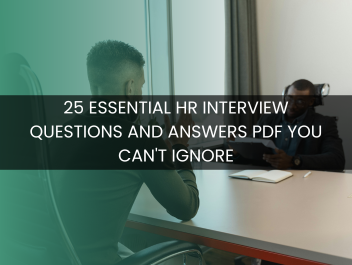




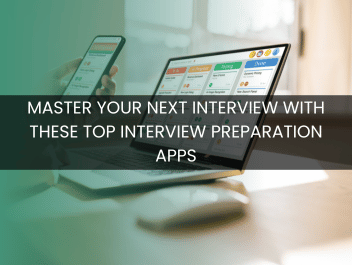









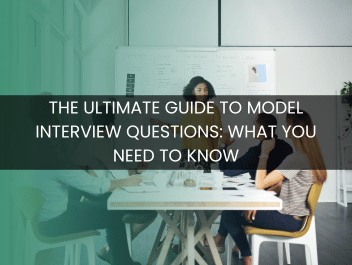





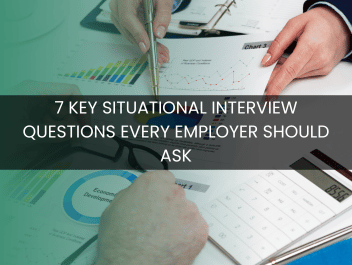

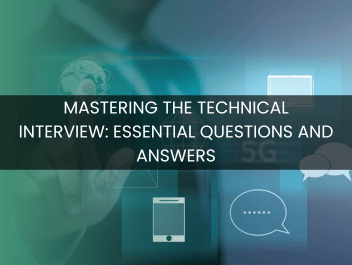

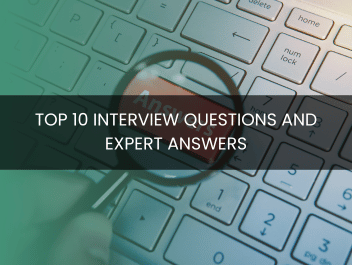











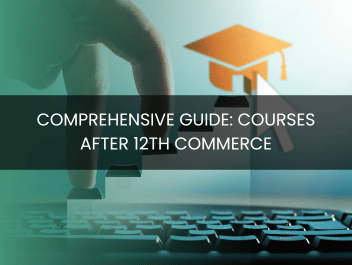














































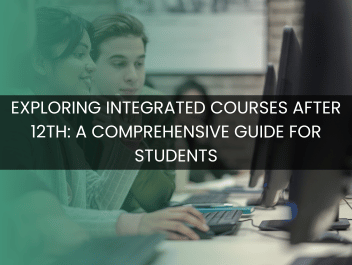






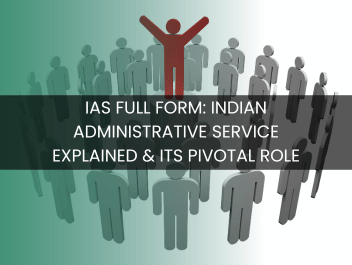










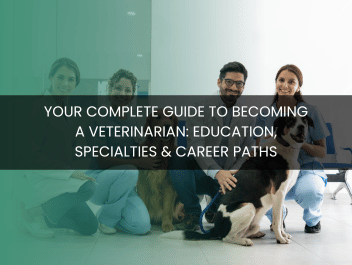




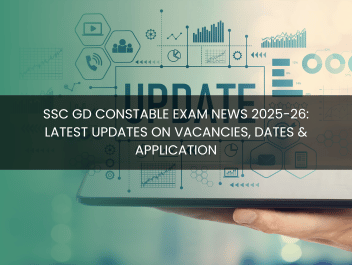


_Thumbnail_.png )
_Thumbnail_.png )














_All_You_Need_to_Know_Thumbnail_.png )






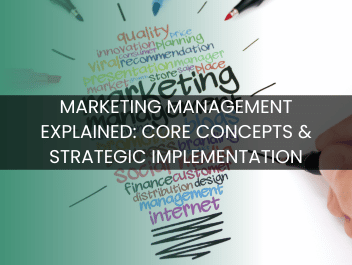
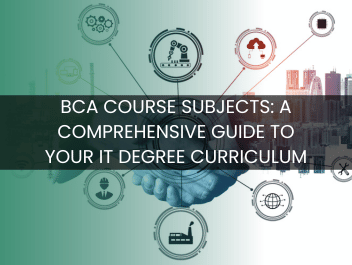

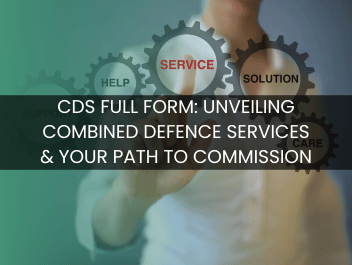












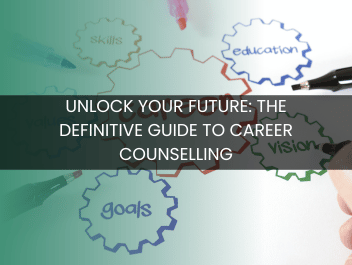

_Thumbnail_.png )

